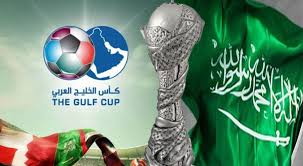November 12 – The Gulf Cup, West Asia’s biennial eight-nation tournament, kicks off Thursday with the usual mixture of excitement and controversy and many seeing it very much as a dress rehearsal for the Asian Cup in January.
Saudi Arabia, one of Asia’s sleeping giants, hosts the 22nd staging of competition that runs until November 26 and is a massive deal for those taking part as well as the region as a whole even though much of the outside world will not be paying much attention.
In group A, the hosts, staging the competition for the fourth time and taking on Qatar in the opening match at King Fahd International Stadium in Riyadh, are bidding for a fourth Gulf Cup title, buoyed by the fact that Al-Hilal reached the final of the recent Asian Champions League though they hardly covered themselves in glory in terms of their conduct in the second leg.
Qatar, keen to put themselves in the shop window as they take strides towards hosting the World Cup in 2022, crashed out in the group stage last time out but are in a rare and rich vein of form after victories over Uzbekistan and Asian Cup hosts Australia in the last month.
Bahrain and Yemen, the only side in the tournament not to have qualified for the Asian Cup, complete the group.
Group B is spearheaded by reigning champions United Arab Emirates who are likely to be tested by Iraq. Oman and Kuwait – the Gulf Cup’s most successful nation though not for several years – are the other contenders.
According to local reports, the build-up to the regional football fiesta has been plagued by a dispute over broadcasting rights. After being free-to-air in the past, national broadcasters have been asked to pay millions of dollars to secure matches. UAE FA chief Yousef Al Serkal, vice- president of the Asian Football Confederation, suggested that had his country been hosting, then it would all have been free to viewers.
Contact the writer of this story at moc.l1731641611labto1731641611ofdlr1731641611owdis1731641611ni@wa1731641611hsraw1731641611.werd1731641611na1731641611


